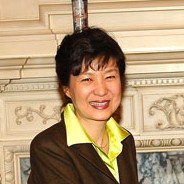The Uppsala Conflict Data Program (UCDP) has released its annual by-the-numbers update on the state of conflict worldwide, through the end of 2012, in the latest issue of the Journal of Peace Research. The combination of statistics and violence makes for unusually dismal reading, but nevertheless the authors have good news: “Overall, the 2000s has been the least conflict-ridden decade since the 1970s.” Last year in particular saw 32 armed conflicts around the world, five fewer than in 2011, where the authors define an “armed conflict” as one that “concerns government or territory or both where the use of armed […]
Q & A Archive
Free Newsletter

On Sunday, South Korean President Park Geun-hye returned from a four-day visit to China that Chinese Foreign Minister Wang Yi said heralded a new chapter in bilateral relations. While the trip led to a number of minor economic agreements between South Korea and China, the most important outcome was that it allowed Park and Chinese President Xi Jinping to develop their relationship. “The main accomplishment is it really offered South Korea an opportunity to forge political and strategic relationships with China without feeling that there were elements of betrayal or contradiction with the U.S.-Korea alliance, and so there’s a foundation […]

On June 15, Egyptian President Mohammed Morsi announced he was cutting diplomatic ties with Syria and backed the creation of a no-fly zone over the country. In an email interview, Eric Trager, Next Generation fellow and an expert on Egyptian politics at the Washington Institute for Near East Policy, explained how Syria’s war has affected Egypt and Morsi’s influence on the broader region. WPR: How are the effects of the Syrian war being felt in Egypt? Eric Trager: The effects of the Syrian war are being felt in three ways in Egypt. First, in the past few weeks, President Mohammed […]
